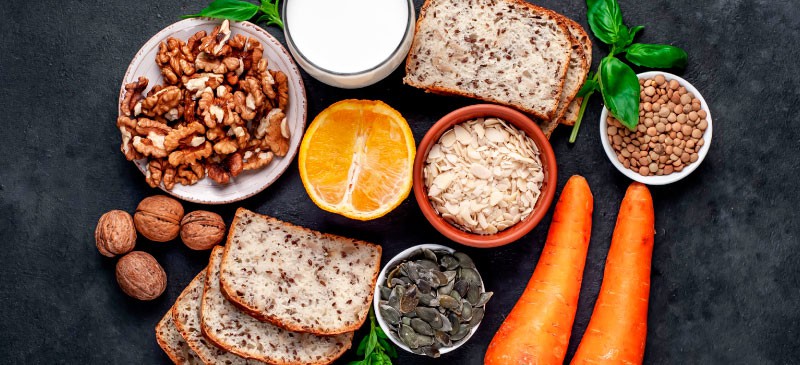Health Benefits of Vitamin B1 (Thiamine)
What are the health benefits of vitamin B1?
Vitamin B1, also known as thiamine, is a vital nutrient that plays a key role in maintaining overall health. Here are some of its health benefits:
- Energy Production: Thiamine helps convert food into energy by assisting in the breakdown of carbohydrates, proteins, and fats.
- Nervous System Support: Thiamine is essential for the proper functioning of the nervous system. It is involved in the transmission of nerve signals and helps maintain the health of nerves.
- Heart Health: Thiamine is important for the health of the heart muscle. It helps in the production of acetylcholine, a neurotransmitter that is essential for proper heart function.
- Digestive Health: Thiamine aids in the production of hydrochloric acid in the stomach, which is necessary for the digestion of food.
- Brain Function: Thiamine is crucial for brain health and cognitive function. It plays a role in the synthesis of neurotransmitters and can help improve mood and concentration.
- Eye Health: Thiamine is important for maintaining healthy vision. It is involved in the production of a neurotransmitter called acetylcholine, which is necessary for proper eye function.
- Antioxidant Properties: Thiamine has antioxidant properties that can help protect cells from damage caused by free radicals.
- Muscle Function: Thiamine is important for muscle contraction and nerve signaling, making it essential for overall muscle function.
- Metabolism: Thiamine is involved in various metabolic processes in the body, including the synthesis of DNA and RNA.
- Stress Management: Thiamine plays a role in the production of certain hormones that help the body respond to stress.
It’s important to ensure an adequate intake of thiamine through diet or supplementation to support these essential functions in the body.
What are the health risks of vitamin B1?
Vitamin B1, or thiamine, is generally considered safe when taken within recommended doses. However, excessive intake of thiamine is rare and typically only occurs with high-dose supplementation.
Here are some potential health risks associated with vitamin B1:
- Allergic Reactions: Some people may be allergic to thiamine supplements, leading to allergic reactions such as rash, itching, or difficulty breathing.
- Digestive Issues: High doses of thiamine supplements can sometimes cause digestive issues such as nausea, vomiting, and diarrhea.
- Low Blood Pressure: In some cases, thiamine supplements can lower blood pressure, which may be a concern for individuals with already low blood pressure or those taking medications that lower blood pressure.
- Drug Interactions: Thiamine supplements may interact with certain medications, including diuretics and medications used to treat epilepsy, leading to potential health risks.
- Worsening of Certain Conditions: People with certain health conditions, such as heart failure or certain types of cancers, may experience worsened symptoms with high-dose thiamine supplementation.
It’s important to talk to a healthcare provider before starting any new supplement regimen, especially if you have underlying health conditions or are taking medications, to ensure that thiamine supplementation is safe and appropriate for you.
What foods are rich in thiamine?
Thiamine, also known as vitamin B1, is found in a variety of foods. Here are some foods that are rich in thiamine:
- Whole grains: Whole grains such as wheat, oats, and brown rice are good sources of thiamine.
- Legumes: Legumes such as lentils, beans, and peas are good sources of thiamine.
- Nuts and seeds: Nuts (such as almonds and pecans) and seeds (such as sunflower seeds and flaxseeds) are good sources of thiamine.
- Pork: Pork is a good source of thiamine.
- Fish: Fish such as trout, salmon, and mackerel are good sources of thiamine.
- Fortified foods: Some processed foods, such as breakfast cereals and nutritional yeast, are fortified with thiamine.
- Meat: Beef and liver are good sources of thiamine.
- Whole wheat bread: Whole wheat bread is a good source of thiamine.
- Eggs: Eggs are a good source of thiamine.
- Dairy products: Milk and yogurt are sources of thiamine.
Including these foods in your diet can help ensure an adequate intake of thiamine.




